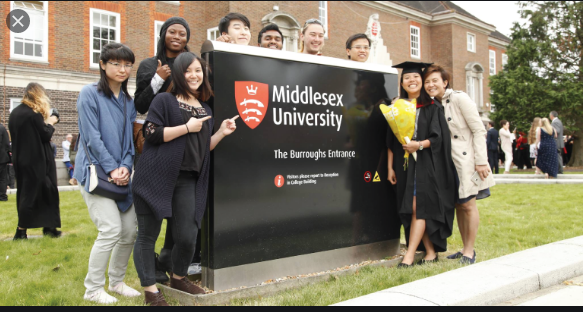Electronic Engineering BEng/MEng
Overview
Why study electronic engineering* with us
Giving you a flexible approach that lets you tailor our electronic engineering course to suit your personal interests and career ambitions, you’ll gain the skills, the knowledge, and the hands-on experience that will put you at the forefront of the next generation of electronic engineers.
With the option to study a three-year BEng, or a four-year MEng, you’ll gain a broad understanding of both digital and analogue electrical systems. You’ll also enhance your problem-solving ability, build your design skills and learn to use professional methods and software to build complex electronic circuits and systems.
Build your electronic engineering skills
With access to our range of facilities and workshops and industry experts, you’ll also get plenty of feedback and support to start building your professional portfolio.
You’ll broaden your knowledge, industry contacts and employability skills through our networking events, work experience opportunities and the chance to take part in design engineering competitions. You’ll also have the option to gain a competitive edge by taking a paid, year-long work placement.
Our weekly guest lectures give you the chance to enhance your industry knowledge and build contacts with some of the industry’s leading design experts and companies.
From your second year, you’ll have the option to carry on with your electronic engineering degree or transfer to a design engineering, robotics, or mechatronics programme. If you’re applying for our four-year MEng course, you’ll also gain your master's qualification as soon as you successfully finish your undergraduate study.
Get the support you need to succeed
During your course, you’ll get personalised support from your Personal Tutor, Student Learning Assistant, and Graduate Academic Assistant. Their first-hand experience in your subject area means they understand how to best support you.
We’re also committed to helping you get a competitive edge when it comes to launching your career. Our electronics engineering degree is accredited by the Institution of Engineering Designers (IED), and meets the academic standards of Chartered Engineer (CEng). This means you’ll be able to apply for CEng status after gaining enough experience in an engineering role.
Intakes
- Oct
Application Processing Time in Days: 30
Application Process
Minimum English Language Requirements
| English Level Description | IELTS (1.0 -9.0) | TOEFL IBT (0-120) | TOEFL CBT (0-300) | PTE (10-90) | |
|---|---|---|---|---|---|
| Expert | 9 | 120 | 297-300 | 86-90 | |
| Very Good | 8.5 | 115-119 | 280-293 | 83-86 | |
| Very Good | 8 | 110-114 | 270-280 | 79-83 | |
| Good | 7.5 | 102-109 | 253-267 | 73-79 | |
| Good | 7 | 94-101 | 240-253 | 65-73 | |
| Competent | 6.5 | 79-93 | 213-233 | 58-65 | |
| Competent | 6 | 60-78 | 170-210 | 50-58 | |
| Modest | 5.5 | 46-59 | 133-210 | 43-50 | |
| Modest | 5 | 35-45 | 107-133 | 36-43 | |
| Limited | 4 | 32-34 | 97-103 | 30-36 | |
| Extremely Limited | < 4 | < 31 | < 93 | < 30 |
Admission Requirement / Eligibility Criteria
112 UCAS points including 80 points from at least two science or numerate based subjects and GCSE English and Maths at grade C or above
Middlesex University has a flexible and personalised approach to admissions and we accept applications from students with a wide range of qualifications and a combination of qualifications.
Please check our general entry requirements page to see how these points can be achieved from our acceptable level 3 qualifications and the combinations which are welcomed by Middlesex University, including GCSE requirements.
Applications from mature candidates without formal qualifications are welcomed, provided they can demonstrate appropriate levels of relevant ability and experience.
If you are unable to meet the entry requirements for this course you may still be eligible for our Foundation year in Computing and Engineering course. This is an extra year of study to prepare you for the full degree.
To find out more about the qualifications we accept from your country please visit the relevant support in your country page. If you are unsure about the suitability of your qualifications or would like help with your application, please contact your nearest regional office for support.
Visas and immigration
You will not need a visa to study in the UK if you are a citizen of the European Union, Iceland, Liechtenstein, Norway or Switzerland. If you are a national of any other country you may need a visa to study in the UK. Please see our visas and immigration page for further information.
- Course Type: Full Time
- Course Level: Bachelors/UG Degree
- Duration: 04 Year
-
Total Tuition Fee:
54800 GBP
Annual Cost of Living: 12006 GBP
Application Fee: N/A
Similar Programs
- Cyber Security and Digital Forensics at Middlesex University London
- Robotics BEng/MEng at Middlesex University London
- Robotics BEng at Middlesex University London
- Professional Aviation Pilot Practice L3 - Commercial Training Solutions (Airline Academy) BSc Honours at Middlesex University London
- Professional Aviation Pilot Practice (Tayside Aviation) BSc Honours at Middlesex University London
- Professional Aviation Pilot Practice (Helicopter) (Helicentre Aviation Academy) BSc Honours at Middlesex University London

